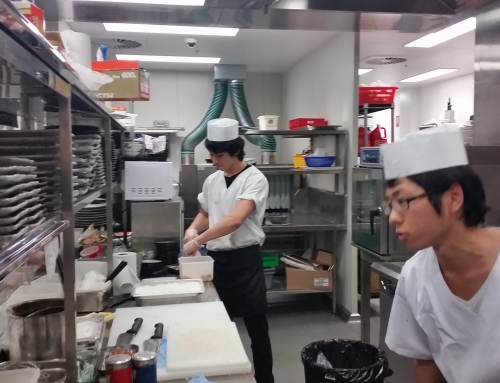Every quarter of each financial year, your business must meet certain reporting obligations set by the Australian Taxation Office (ATO). These include Business Activity Statements (BAS) and Pay as you go (PAYG) withholding.
While some businesses may meet these obligations on a monthly or annual basis, most businesses lodge their reports and payments every 3 months. Accurate and timely bookkeeping solutions can help you to plan ahead for these lodgements and subsequent payments.
ATO quarterly reporting due dates
Generally, the due dates for BAS and PAYG lodgement fall 28 days after the end of the quarter. This is except for the second quarter, which includes a one-month extension. Quarterly reporting due dates are outlined below:
| Q1 – July, August, September | 28 October |
| Q2 – October, November, December | 28 February |
| Q3 – January, February, March | 28 April |
| Q4 – April, May, June | 28 July |
When a due date falls on a Saturday, Sunday or public holiday, you can lodge or pay on the next business day.
In addition to these dates, some businesses may be eligible for extensions based on how they lodge their reports. Ask us if your business is entitled to any extensions past the due dates.
Business Activity Statements (BAS)
Businesses that are registered for Goods and Services Tax (GST) are required to lodge a BAS every quarter (or month). BAS reports the GST, PAYG and other taxes to the ATO.
Learn more about Business Activity Statements (BAS) and Goods and Services Tax (GST).
Pay as you go withholding (PAYG)
Tax must be withheld from certain payments your business makes to others, which is known as PAYG. The payments requiring tax withholding include:
- Payments to employees, company directors and office holders
- Payments to workers under labour-hire contracts or agreements
- Payments under voluntary agreements
- Payments where a person or business hasn’t quoted an Australian Business Number (ABN) in relation to their supply of goods or services
The amounts withheld from the above payments are then reported on your BAS and you must pay the ATO the amount by the due date.
If your business fails to comply with PAYG withholding, you may face penalties and may not receive a deduction for that payment.
Superannuation
Businesses must pay superannuation for all eligible employees from their very first working day onwards. Super contributions are calculated at 9.5% of an employee’s ordinary time earnings and must be paid into the employee’s nominated super account.
Superannuation entitlements may vary depending on the employee’s federal or state award – so do make sure you look up the latest relevant information.
Standard SGC (Superannuation Guarantee Contributions) for most industries is (for employees to be eligible), they must be over 18 years old and paid $450 or more before tax in a month OR under 18 years old and working over 30 hours each week.
The most common hospitality award is Restaurant Industry Award 2010. It differs from the standard SGC entitlements. Under section 30.2: The employer must make contributions for each employee for such month where the employee earns $350.00 or more in a calendar month.
If your employees are working under the Hospitality Industry (General) Award 2010, the same contributions apply as above: The employer must make contributions for each employee for such month where the employee earns $350.00 or more in a calendar month.
This information was relevant at the time of writing but do check the current award applicable to your employees for the latest information.
Super payments received by the super funds after the due date will attract a charge known as the Super Guarantee Charge (SGC). The SGC is not a tax deduction and has its own due dates for payment. Usually 1 month after the due payments. Ask us
The minimum due dates for superannuation contribution are below, however, businesses can also choose to pay weekly, fortnightly or monthly.
| Q1 – July, August, September | 28 October |
| Q2 – October, November, December | 28 January |
| Q3 – January, February, March | 28 April |
| Q4 – April, May, June | 28 July |
Super guarantee (SG) payments must be made to complying funds or retirement savings accounts (RSAs) by the quarterly due dates, which are 28 days after the end of each quarter. Some super funds require employers to make contributions monthly. When you register with a fund with this requirement, you are agreeing to make monthly contributions to that fund.
You need to pay and report super electronically to ensure it meets SuperStream requirements.
Did you know that all businesses must now be connected to the ATO through Single Touch Payroll (STP)? The deadline for getting set up has passed, so it’s critical that your business gets connected with STP immediately. Read more about Single Touch Payroll (STP) or get in touch with us for assistance.
Bookkeeping solutions to streamline your reporting and payments
When restaurants or cafes open for business, employers can often forget that they must pay their employee’s superannuation, PAYG tax and GST in the first few months of operation and then ongoing every quarter.
If you don’t save money for these expenses, you will encounter cash flow issues or accumulate debt with the ATO. Super, PAYG and GST on sales was never your money to keep, so don’t fall into the trap of spending it. Instead, use the old-fashioned ‘teapot’ accounting technique to help keep your food business in the black.
To get started with this method, set up two bank accounts.
- This one is your cheque or trading account. It should be used for regular day-to-day trading, such as POS deposits, paying bills and wages.
- This one is your general savings account to save for the BAS and superannuation payments each quarter.
Every week, tip money from your cheque account to your savings account. To do this, you will need to estimate the amount required. Your bookkeeper can help you with this.
When it comes time to lodge your BAS and pay your super contributions, you won’t have to worry because money has already been set aside in the savings account. To make the most of your savings, it’s a good idea to choose a savings account that is interest-bearing.
This is a good business practice that can help you sleep easy. It’s wise to begin this at the start of your business. However, you can start any time and build up the cash in the ‘teapot’ savings account.
Keep your finger on the pulse while focusing on the parts of your business that need your time and expertise most. Ask us about bookkeeping solutions.






